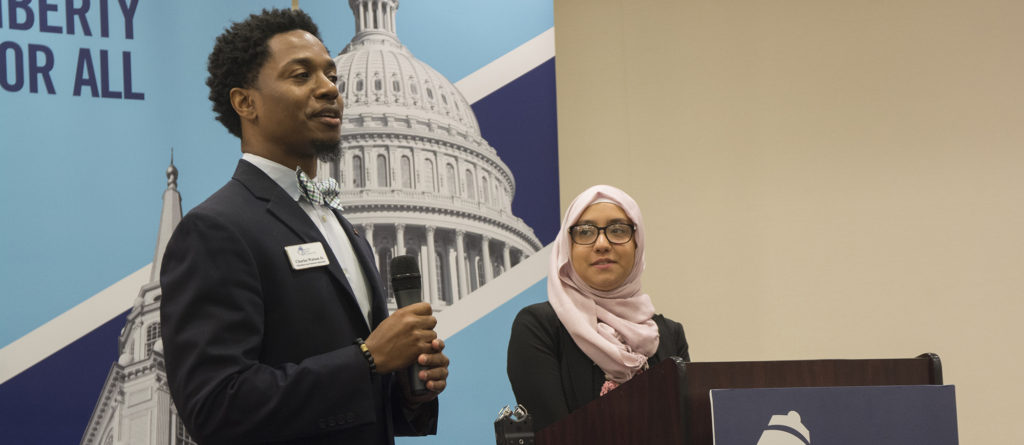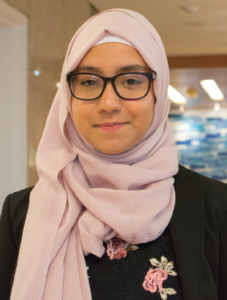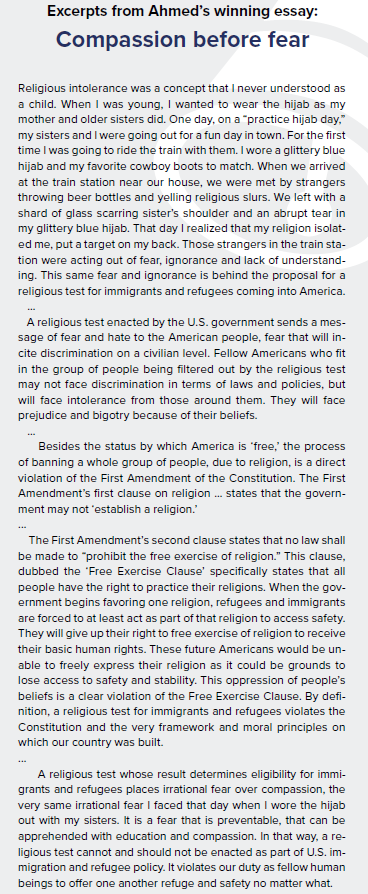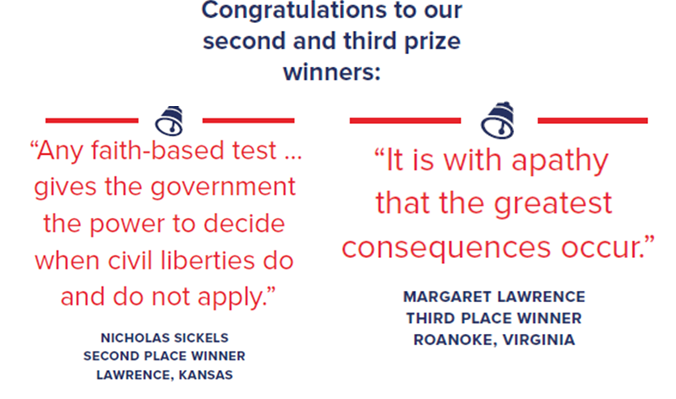

Sharing her personal experiences facing religious intolerance and reviewing how banning people due to religion violates the First Amendment, Yusra Ahmed of Quincy, Massachusetts, earned the grand prize in the 2017 Religious Liberty Essay Scholarship Contest. The annual contest engages high school juniors and seniors in church-state issues by asking them to express a point of view on a provided religious liberty topic.
Ahmed was a special guest at the 2017 BJC Board meeting, where she spoke about her essay and experiences with BJC Education and Outreach Specialist Charles Watson Jr. Below are excerpts from their conversation, edited for length and clarity, and portions of her winning essay. Details for the 2018 Religious Liberty Essay Scholarship Contest will be announced soon. Visit BJConline.org/contest for the latest information.
Our essay topic, which was released in October 2016, focused on whether religious tests should be used as a part of the United States’ immigration and refugee policies. What did you learn as you did your research for this essay?
The biggest thing is that this is not the first time [something like this has] happened. Religious liberty is an issue not just of today, but throughout time.
In your essay, you share from your own experience dealing with religious intolerance. Can you tell us a little more about your story?
Unfortunately, my experiences are wide and vast, and the stories go way back to when I was a toddler with my mom to as recent as last week. But I think when dealing with these experiences, the ones that you remember the most are the ones that happen in schools. And so I think that is a large issue for young men and women in elementary and middle schools, facing that religious intolerance from their schoolmates, who are supposed to be, you know, your friends and people that you trust.
What has your family’s experience been as travel bans targeting Muslim-majority nations have been issued and re-issued?
Well, of course it’s important to my family as Muslims, a minority religion in America. My family [members] are American citizens — American born — so we lucked out in that aspect. But to see people in my community facing a sense of instability about their next steps or, if they go home to visit family, whether they will be able to come back, has been very disheartening.
What did you learn about Baptists by participating in this essay contest?
I think actions speak louder than words, and so being able to see what was done [by the BJC] — and I didn’t know this organization existed before — and just sort of seeing it, and being able to know that there are people out there defending my rights is an amazing thing.
What is it like to see people from various religious backgrounds come together to stand up for and defend the rights of Muslims?
Well, I don’t think anything’s going to change unless we all band together, and seeing this solidarity and knowing that you’ve got our back is a great thing.
How did you hear about the essay contest, and why did you enter?
It was on Fastweb.com, and that’s basically just a website with a bunch of scholarships listed nationwide. I entered because it seemed like a very special type of scholarship. Most are more about what you are going to do with the money and more basic questions. This one asked something that sort of related to me, and I felt like I could share my voice and opinion.
Why is it important for high school students to engage in church-state issues and think critically about them?
Seniors in high school are 17 or 18, so they’re borderline being able to vote. Right before [we’re] given a chance to vote, we’re not very much given any method to voice our opinions or give our voice in any situation. And for an issue like this — it’s very personal to many people. So having [high school students] engage allows their voice to be heard and their opinions to be given.

From the September/October 2017 edition of Report from the Capital. You can also read the digital version of the magazine or view it as a PDF.




